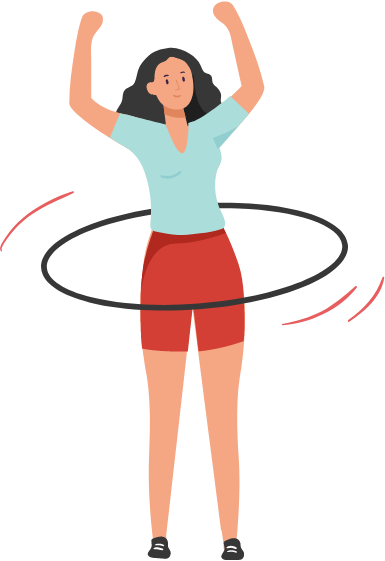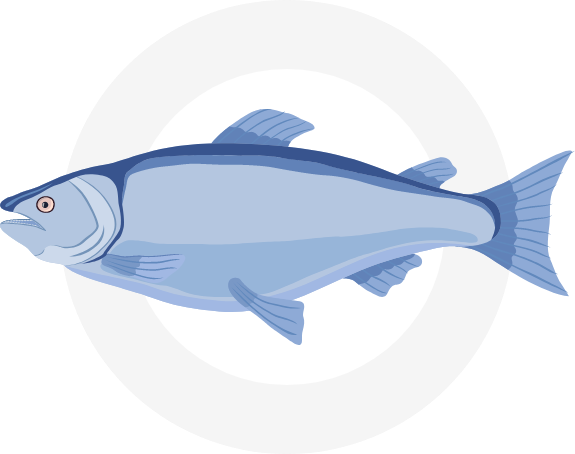Astaxanthin Benefits


What are the Benefits of Astaxanthin?
Inflammation is necessary and an important biological process that allows us to survive. It’s our body’s response to fighting infection and repairing damaged tissue. However, persistent inflammation can be extremely harmful. Most people experience low levels of inflammation without realizing it, originating from anything such as smoking, high dietary sugar, trans fats, stress, or lack of exercise. Compared to some anti-inflammatory drugs, astaxanthin targets inflammation throughout the body without the potential harmful side effects of many drugs. Whether you have mild overuse soreness or a major inflammatory illness astaxanthin’s anti-inflammatory properties will benefit anyone.
Five signs of inflammation are:
- Redness
- Warmth
- Loss of Function
- Pain
- Swelling
Five signs of inflammation are:
- Redness
- Warmth
- Loss of Function
- Pain
- Swelling
In most cases, when there is inflammation, there is oxidative stress. By decreasing inflammation, astaxanthin can help prevent, and treat, a number of problems that result directly from inflammation.
Anti inflammatory drugs have earned a bad reputation as drugs with a long list of harmful side effects. In some severe cases, they are necessary but in order to battle chronic inflammation, natural anti-inflammatories like Astaxanthin are a much safer long term solution. While some drugs will target single inflammation mediators, astaxanthin will affect a wide range in a gentler, less concentrated manner, without the negative side effects. An antioxidant with this kind of power can have a positive impact on human health; more studies are regularly being published about this incredible nutrient. Here are just some of the ways astaxanthin can positively impact your health, according to the latest research:
Joint Health
As we age many of us experience pains in our joints. Often this pain is a result of inflammation in the joint. Astaxanthin has been shown to help with a range of common joint and tendon pains with its ability to reduce inflammation, resulting in less pain and better mobility. In one study, more than 80 percent of arthritis suffers improved with astaxanthin. Astaxanthin can help with:
- Tennis Elbow
- Rheumatoid Arthritis
- Carpal tunnel syndrome
- Post-exercise joint soreness
A study by the Health Research and Studies Center involved giving tennis elbow sufferers an eight-week course of astaxanthin. The treatment group showed a 93 percent improvement in grip strength, as well as decreased pain. The same study also found the severity of pain and the duration of Carpal tunnel syndrome with the supplementation of Astaxanthin reduced significantly. The Journal of the American College of Nutrition published a study that found after eight weeks, rheumatoid arthritis sufferers experienced a 35% improvement in pain levels along with a 40% improvement in their ability to perform daily tasks. One astaxanthin trial by The Human Performance Laboratories at the University of Memphis that looked at post exercise knee soreness in young healthy males. They found the placebo group had knee soreness lasting up to 48 hours after the workouts compared to the group on Astaxanthin experiencing no increase in knee soreness after workouts.

Brain Health
Most brain diseases result from oxidation and inflammation with free radicals damaging the brain over time eventually leading to Dementia or Alzheimer’s. As a fat-soluble nutrient, Astaxanthin can cross the blood-brain barrier. There is an abnormal accumulation of hydroperoxides within red blood cells in people with dementia and Alzheimer’s, however, when given astaxanthin, these harmful free radicals have been reduced by up to 50%. With astaxanthin’s antioxidant abilities, it can enhance the brain and nervous system protection from free radicals. Astaxanthin can help with:
- Dementia
- Alzheimers
Researchers have found astaxanthin supplementation has led to improvements in cognitive function in older individuals with age-related forgetfulness. Astaxanthin has been shown to accumulate in the red blood cells of people who suffer from dementia, potentially reducing the risk of dementia. According to study in the Alternative Medicine Review, ‘Astaxanthins clinical success extends beyond protection against oxidative stress and inflammation to show promise for slowing age-related function decline.’

Eye Health
Our retina is an oxygen and light rich environment demanding a large number of free radical scavengers to prevent oxidative damage. Astaxanthin easily crosses into the tissues of the eye and mopping up free radicals and reducing inflammation safely and with more potency than any other carotenoid without any harmful reactions. Astaxanthin can help with:
- Age related Macular Degeneration
- Eye fatigue and soreness
- Loss of visual sharpness
- Diabetic Neuropathy
- Cystoid Macular Edema
- Glaucoma
- Dry and irritated eyes
Epidemiological studies have shown diets high in carotenoids are associated with a reduced risk of age-related macular degeneration and cataracts. After studies on many carotenoids and their ability to protect the retina, none have managed to work as well as Astaxanthin does. As a free radical scavenger, with the ability to pass through the blood-retina barrier, astaxanthin has outperformed all other carotenoids as the winner when it comes to protecting your eyes.

Heart Health
Astaxanthin could be beneficial for heart health by preventing oxidation of cholesterol and reducing inflammation. Oxidative stress and inflammation are involved in atherosclerotic cardiovascular disease. Astaxanthin can help improve blood lipid profiles by decreasing LDL and triglycerides, and by increasing HDL. Astaxanthin also can lower blood pressure and improve plaque stability in the arteries.
Astaxanthin can help with:
- Strokes
- Heart attacks
- High blood pressure
- High cholesterol
A study by the Health Research and Studies Center involved giving tennis elbow sufferers an eight-week course of astaxanthin. The treatment group showed a 93 percent improvement in grip strength, as well as decreased pain. The same study also found the severity of pain and the duration of Carpal tunnel syndrome with the supplementation of Astaxanthin reduced significantly. The Journal of the American College of Nutrition published a study that found after eight weeks, rheumatoid arthritis sufferers experienced a 35% improvement in pain levels along with a 40% improvement in their ability to perform daily tasks. One astaxanthin trial by The Human Performance Laboratories at the University of Memphis that looked at post exercise knee soreness in young healthy males. They found the placebo group had knee soreness lasting up to 48 hours after the workouts compared to the group on Astaxanthin experiencing no increase in knee soreness after workouts.

Skin Health
Astaxanthin helps protect your skin from overexposure due to sun-induced free radicals. It is said to act as an internal sunscreen by reducing damage caused by ultraviolet radiation from the sun, the largest environmental risk factor for skin cancer. The same powerful antioxidant properties that protect the algae from the sun’s rays will protect you skin as well. Skin cells that are exposed to ultraviolet light produce free radicals that trigger aging effects and promote cancer. It takes a few weeks of supplementation for this pigment to build up in your skin, however once it has it will be much harder for your skin to burn from sun exposure.
- Act as an internal sunscreen
- Reduce the risk of skin cancer
- Slow down the aging of the skin
A study looking at the skins resistance to both UVA and UVB light before and after astaxanthin supplementation showed within 3 weeks of supplementing 4mg of astaxanthin a day, subjects showed a significant increase in the time taken for their skin to burn. Another study in Japan found women supplementing astaxanthin saw improvements in as little as four weeks with 2mg a day. This includes better moisture, fewer fine lines, increased skin elasticity, fewer freckles and a smoother surface.

Immune System Health
mmune system cells are extremely sensitive to free-radical damage, partly because their cell membranes contain a high percentage of polyunsaturated fatty acids, a common target of free radicals. Antioxidants offer important protection against free radicals to preserve the immune system defenses. Astaxanthin will aid the immune system by increasing the total number of antibody-producing B-cells and help increase the production of T-cells, also reducing DNA damage.

Cancer Prevention
Astaxanthin has been shown to display anti-cancer properties in animal studies. As astaxanthin is not commonly found in a human diet, information on the extent of it’s benefits to human health is limited but growing. As a powerful antioxidant, astaxanthin can inhibit the growth of cancer cells by lowering free radical-induced cellular damage, reducing inflammation and boosting an immune response. A handful of studies has shown astaxanthin protected mice and rats from cancers by improving their anti-tumor response and a great inhibitory effect on cancer. Astaxanthin shows positive effects against cancer by:
- Preventing cancerous growth in cells that evade immune detection by reducing inflammatory changes
- Preventing cancer developing by protecting DNA from oxidative damage
- Blocking cell replication of tumors in their growth phase by stopping the cancer cells reproductive cycle
- Reducing lactic acid in your muscles
- Enhancing the gap junctions and cell to cell communication

Exercise Recovery
As one of the most effective natural anti-inflammatories, astaxanthin can enhance athletic ability. By lowering inflammation, one could experience a reduction in joint and muscle soreness after exercise, along with an increase in endurance and faster recovery. Most of our mitochondrial cells are found in muscle tissue for energy production. By producing energy in the muscles when exercising, we make free radicals resulting in cellular damage, inflammation and sore muscles. The harder the exercise the more free radicals we products.
Astaxanthin can help with:
- Neutralising free radicals in your energy producing mitochondrial cells
- Decreasing oxidative damage to your cell membranes and DNA
- Decreasing muscle inflammation
- Reducing lactic acid in your muscles
- Improving visual acuity
When Salmon prepare to lay eggs they swim upstream, often against strong currents and over dams. They embark on such journeys for hundreds of miles often without food. It is believed that Astaxanthin plays a large role in their ability to undertake such a feat as it increases one’s endurance abilities.
